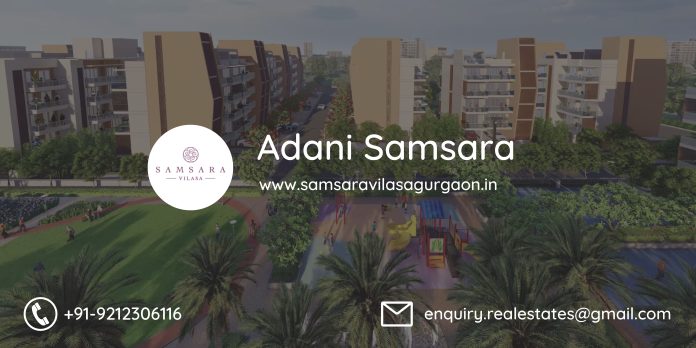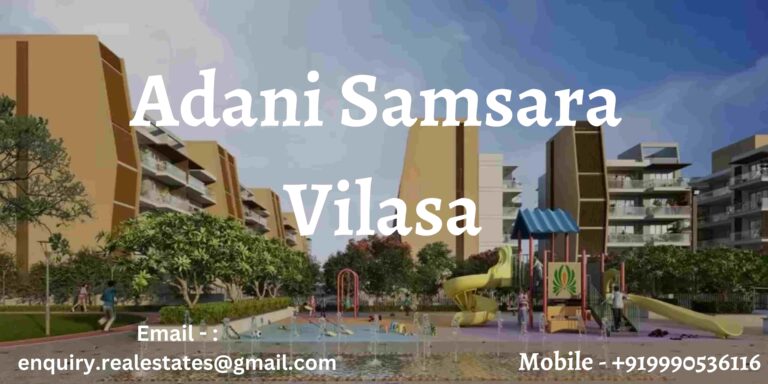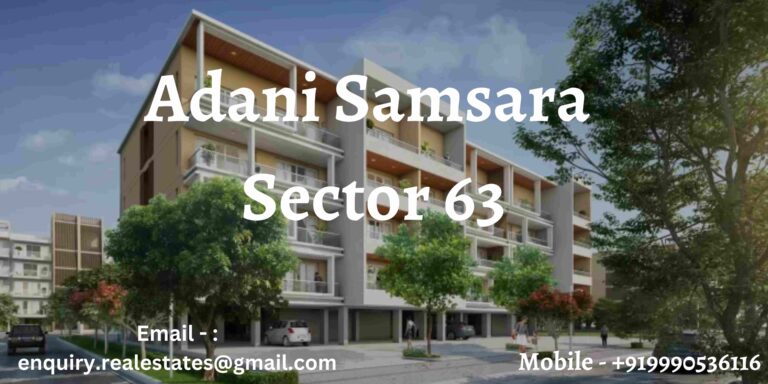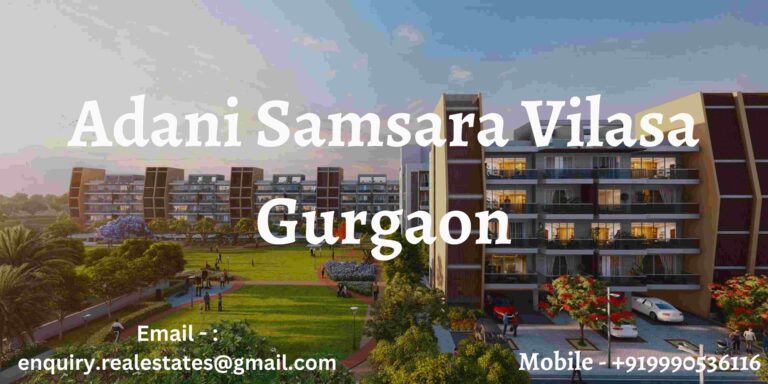14 Days to a Better Adani Samsara Vilasa in Real State
Adani Samsara Vilasa is an investment opportunity that allows you to become part of the Adani Group. It offers investors a unique opportunity to invest in real estate projects developed by the Adani Group, one of the largest family-owned conglomerates in India. The company’s portfolio includes properties across different segments such as industrial and commercial properties, residential complexes and hotels.
Research the developer and their track record
- Research the developer and their track record.
- Check out their website, social media presence, and reputation on various platforms.
- Do a quick search for past projects or clients that have worked with them. Also check out if there are any complaints about them in third-party reviews or forums such as TripAdvisor or Google My Business (GMB).
Determine your budget and financing options
Before you start, it’s important to know what your budget is and how much financing options are available. A budget is a set amount of money that you can spend on the project. Financing refers to borrowing money in order to complete a project or purchase an asset such as real estate.
There are several ways to get financing for your project:
- Credit card – You can apply for loans through credit cards, usually at high interest rates. If approved, however, they may offer lower interest rates than other forms of debt (e.g., mortgages). While this option may seem attractive at first glance because it offers immediate access without having any collateral involved like homes or cars would require if using traditional loans from banks/lenders; there’s another drawback: Your monthly payment will be larger than usual due not only due higher interest rate but also because most lenders require payments each month regardless whether they’re late!
Consider location and connectivity
Location and connectivity are important. Location is a key driver of real estate prices, but it’s not the only factor that affects them. Connectivity is an even more important aspect that determines how easy it will be for you to get around in your new neighborhood.
Location: The location of your home or apartment matters because it affects both your lifestyle and its value over time (if you’re selling). If someone wants to buy an apartment at Adani Samsara Sector 63, they’ll likely want one with good schools nearby so their kids can learn in peace and quiet instead of being distracted by traffic noise or other distractions on their way home from school every day!
Connectivity: A lack of connectivity means there may be certain amenities such as shopping centers nearby but no public transportation making getting around difficult unless someone drives themselves around town which isn’t always practical if there aren’t enough parking spaces available near where people live anyway plus having far too much traffic congestion during rush hour times makes life miserable for everyone involved including drivers themselves!
Consider location and connectivity
Location is one of the most important factors in your decision-making process.
Location is important for business, leisure and connectivity. It also provides access to education, jobs and healthcare. The location of your house or unit will determine how you use it – whether it’s for entertainment purposes only or if you plan on living there as well.
If you want to buy an apartment that’s close enough to work but far enough away from other buildings so as not attract unwanted attention from neighbours who might not like their privacy being invaded by late night parties or loud music coming from somewhere else in the building (or even outside), then finding somewhere near transport infrastructure such as rail stations may be key too!
Assess the quality of construction and materials
- Check the quality of construction and materials. Check if there are any cracks, holes or other defects in the walls, ceilings and flooring. You should also check for loose tiles or pavers that may have fallen off due to weathering or wear-and-tear from foot traffic.
- Check for poor quality landscaping that could lead to water damage in case of flooding conditions as well as intrusions from pests such as termites (termites are attracted by dry mud). If you see these signs at your property then you should take action immediately because it could compromise your investment value over time if left unattended!
Explore the range of amenities and features
The first step to creating a Samsara Vilasa for your brand is to explore the range of amenities and features that you can include. If you’re looking for inspiration, take a look at our features list below:
- A variety of rooms sizes and layouts—from single-bed rooms to large family suites; from private bathrooms with bathtubs to luxury en suite bathrooms; from classic colonial décor to contemporary style.
- An extensive range of amenities, including swimming pools (both indoor and outdoor), fitness centres/spas, restaurants serving Indian cuisine or Western cuisine (with vegetarian options), bars where guests can enjoy drinks at any time during their stay if they wish so.
Explore the range of amenities and features
Samsara Vilasa is a luxury brand that offers an array of amenities and features. The sales brochure should include the latest information about these, so your potential customers can make informed decisions before making their purchase. This will help them decide whether Samsara Vilasa is the right choice for them and if it’s worth investing in this lifestyle brand.
You can also share details about Samsara Vilasa’s facilities with potential clients during your sales presentation video or at other events where you meet people face-to-face (such as conferences).
Calculate potential ROI and investment value
To calculate the potential ROI, you need to consider a few things. First and foremost, you need to calculate the investment value of your property by adding up all of its components:
- Price (the amount you paid)
- Down-payment (the percentage of the total cost that was paid upfront)
- Closing costs (if applicable)
Next, divide this number by 10. This will give you an estimated return on investment as well as a rough idea of how much profit or loss has been incurred over time due to changes in market value or other factors that affect real estate values such as inflation rates and interest rates.
Negotiate the best price and payment plan
The developer will be looking to negotiate the best price and payment plan with you. They may try to use a friendly tone, but it’s important that you remain professional and don’t let them get away with anything. This can be tricky if they’re being confrontational in their negotiations, so it’s best to remain neutral until you have a better understanding of what’s going on.
It’s also important that when negotiating through email or phone calls, you keep things polite and professional at all times—even if your intentions are not!
Review legal and regulatory compliance
- Check the developer’s track record.
- Check the developer’s financial health.
- Check the developer’s compliance with local laws and regulations.
- Check compliance of all projects by Adani Group in India, Australia and United Kingdom (UAE).
Plan for future resale and liquidity
As you begin to plan for the future resale and liquidity of your property, it is important that you know what options and strategies are available in relation to getting a good price for your house. The best way to get a good price for your home is by selling it in the market place. There are several ways which can help one sell their property faster than others including:
- Selling through agents who have knowledge about real estate market conditions, trends and trends in demand;
- Listing on websites such as Daftar Sekolah (a school portal) or Kompas (a local newspaper);
- Buying another unit closeby but at least 5km away from yours so they don’t compete with each other when trying sell theirs;
In conclusion, the first step to taking advantage of a good deal is knowing what it is. Your goal should be to determine if this deal is worth your time and energy, then follow up with your bank to find out how much financing can be arranged based on their current criteria. It’s also important that you consider all of the details before signing anything—such as location and amenities—so that when you move in there are no surprises!






